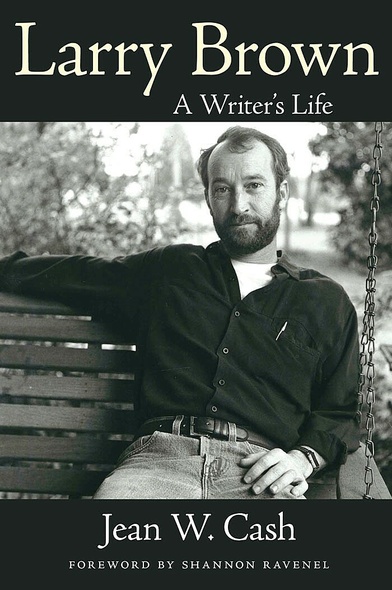Larry Brown
A Writer's Life
Larry Brown (1951–2004) was unique among writers who started their careers in the late twentieth century. Unlike most of them—his friends Clyde Edgerton, Jill McCorkle, Rick Bass, and Kaye Gibbons, among others—he was neither a product of a writing program, nor did he teach at one. In fact, he did not even attend college. His innate talent, his immersion in the life of north Mississippi, and his determination led him to national success. Drawing on excerpts from numerous letters and material from interviews with family members and friends, Larry Brown: A Writer’s Life is the first biography of a landmark southern writer.
Jean W. Cash explores the cultural milieu of Oxford, Mississippi, and the writers who influenced Brown, including William Faulkner, Flannery O’Connor, Harry Crews, and Cormac McCarthy. She covers Brown’s history in Mississippi, the troubled family in which he grew up, and his boyhood in Tula and Yocona, Mississippi, and in Memphis, Tennessee. She relates stories from Brown’s time in the Marines, his early married life—which included sixteen years as an Oxford fireman—and what he called his “apprenticeship” period, the eight years during which he was teaching himself to write publishable fiction.
The book examines Brown’s years as a writer: the stories and novels he wrote, his struggles to acclimate himself to the fame his writing brought him, and his many trips outside Yocona, where he spent the last thirty years of his life. The book concludes with a discussion of his posthumous fame, including the publication of A Miracle of Catfish, the novel he had nearly completed just before his death. Brown’s cadre of fans will relish this comprehensive portrait of the man and his work.
This is the man captured with clarity by Ms. Cash.
Larry Brown’s life story is about as close to a literary version of the Horatio Alger myth as American letters have witnessed. . . . Jean Cash’s exhaustive archival research and firsthand interviews with Brown and those who knew him best enable her to bring that story to life on the page even as her skills as a literary critic wisely assess his writing. For anyone concerned about American writing’s connection to people outside of elite publishing and academic circles, this book affirms that literature has not yet been completely handed over to insiders on the country’s two coasts or reduced to intellectual games requiring footnotes. For all of us who have experienced the power of Brown’s best writing, it offers understanding of the sources and driving forces behind their emotional and intellectual impact.
For fans of the late Brown, this book is a must. For aspiring writers, ditto. And readers everywhere. Ms. Cash has done an exhaustive job, but it’s never exhausting to read. A pleasure and reminder of what a loss Mr. Brown’s death was, but what a gift his writing still is.
Larry Brown’s connection to the earth and animals and many objects seemed religious somehow. He was gentle in a mysterious way, deep, quick, sincere, and very funny. We’re all lucky that he left so much of himself behind—on paper. And I’m thankful that Jean Cash decided to write about him.
Jean W. Cash is professor emerita of English at James Madison University, where she taught a variety of courses in southern literature for thirty-eight years. She is coeditor with Keith Perry of Larry Brown and the Blue-Collar South and Rough South, Rural South: Region and Class in Recent Southern Literature; and coeditor with Richard Gaughran of Twenty-First-Century Southern Writers: New Voices, New Perspectives, all published by University Press of Mississippi. She is author of Flannery O’Connor: A Life and has published a number of essays on southern writers and given numerous conference presentations. Her most recently published essay is on the novels of Ann Patchett.





